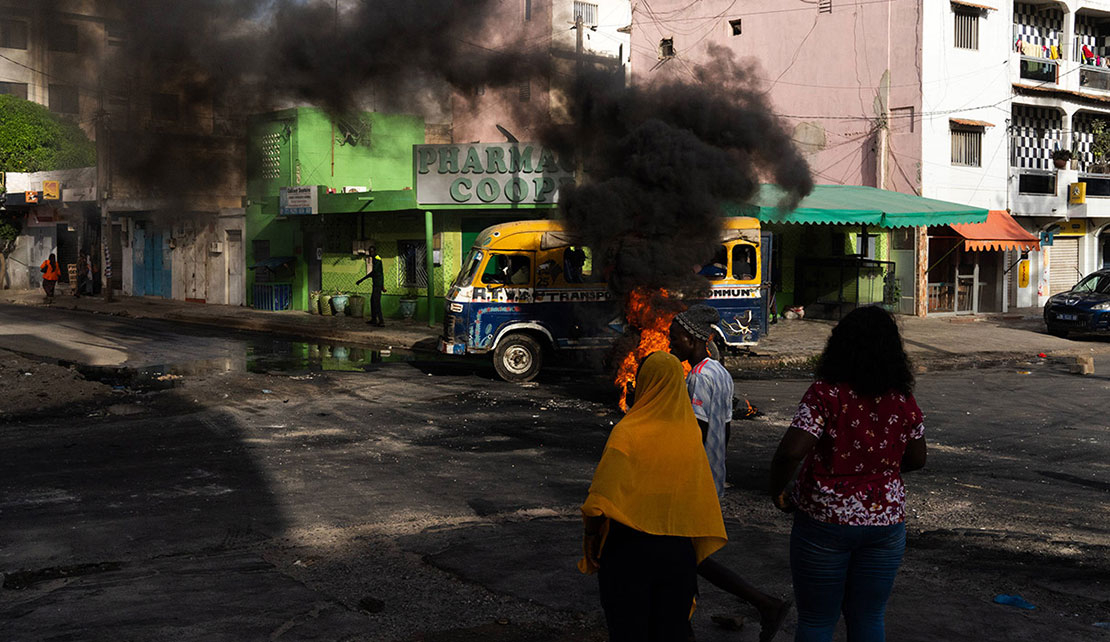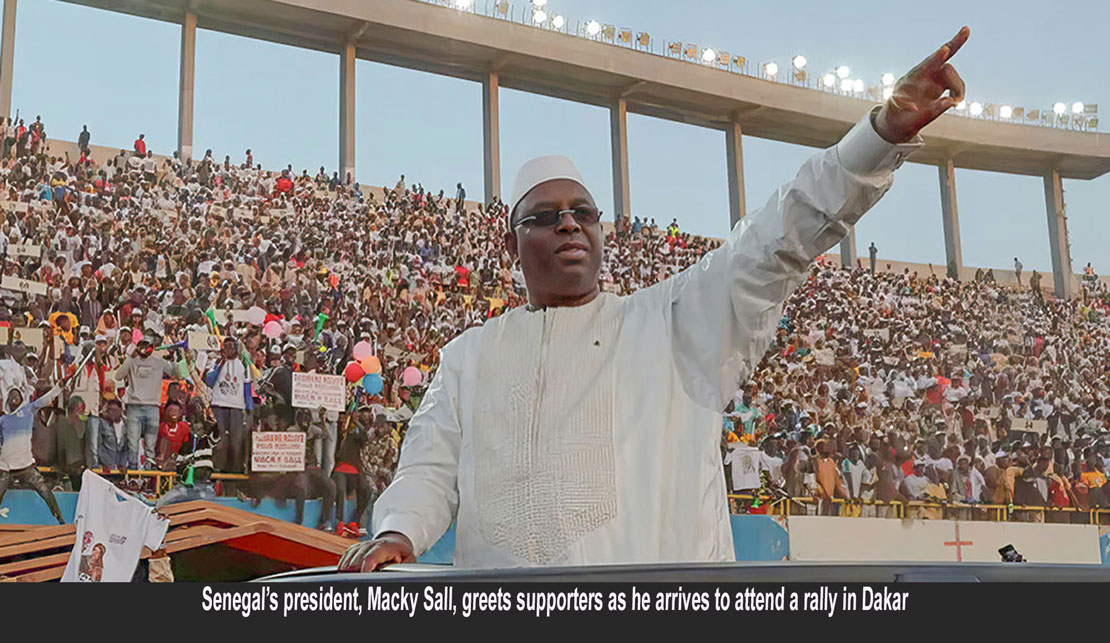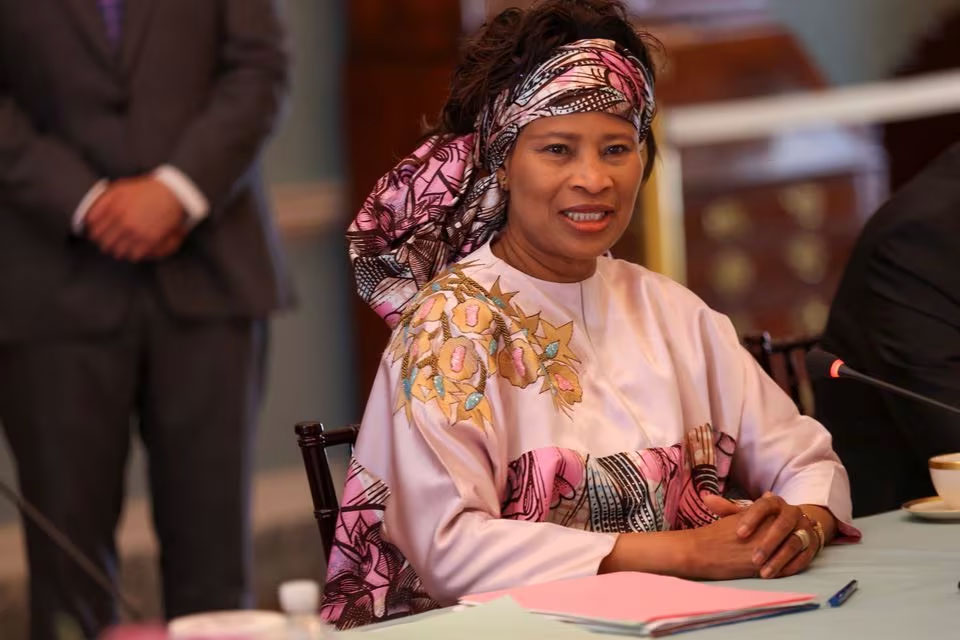SENEGAL Elections Postponed, fiery protests ensues, Demonstrators clash with police

DAKAR, Senegal, February 9, 2024 - Last week, President of the West African republic of Senegal, Macky Sall, unilaterally postponed presidential elections just weeks before the planned presidential election date of February 25, 2024.
Just hours before campaigning was set to begin, the president postponed the elections to December 15, sparking widespread protests across a country already on edge from months of political tension.
Many Senegalese are unhappy with the postponement and believe Sall, who has been in office since 2012 and is no longer eligible to run himself, is trying to hold onto power for longer. Scores gathered to protest in the capital Dakar after Sall announced the shift, but they were forcefully dispersed by the police.
![Protesters run away as a smoke grenade lands near them during clashes with police in Dakar [Guy Peterson/AFP]](/images/senegal-protest.webp)
There is speculation that he has delayed the elections because he is not confident about the popularity of Prime Minister Amadou Ba, the candidate for Sall’s Benno Bokk Yakaar (BBY) coalition, who has been approved by the Constitutional Council.
On Monday, the National Assembly descended into chaos as opposition members who tried to block a bill cementing the delay were arrested and policemen fired tear gas at protesters gathered outside.
Lawmakers voted almost unanimously in favour of the delay on Monday night after security forces stormed the chamber and removed some opposition members, who were unable to cast their votes. Across the country, citizens told Al Jazeera they are in shock and remain pensive about what could happen next.
The Ministry of Posts and Telecommunications also shut down mobile internet on the day of the parliamentary vote, citing security concerns. “Dear customers,” read a text from phone provider Orange, “By decision of the state, mobile internet is suspended by all operators.”
 Observers expressed concern that one of the region’s most influential and stable members was tearing up the rule book, sparking violent protests and raising concerns about knock-on effects in the region.
Observers expressed concern that one of the region’s most influential and stable members was tearing up the rule book, sparking violent protests and raising concerns about knock-on effects in the region.
Security forces in Senegal have had numerous clashes with hundreds of protesters who are opposed to the delay of the presidential election that was supposed to take place in two weeks.
In Dakar, police fired tear gas on crowds and prevented people from meeting and gathering to protest, according to Al Jazeera’s Nicholas Haque, reporting from the capital on Friday.
“There have been running battles between protesters and police and security forces. Most of the demonstrators are quite young, many 18-year-olds. They were barely 12 when President Macky Sall came to power. They want to have a say in this election,” Haque said.
Less than three weeks before the polls were meant to take place, parliament voted to push it back to December 15, upholding Sall’s earlier postponement announcement and sealing an extension of his mandate.
This move by president Macky Sall, has provoked fears that one of the remaining ‘healthy democracies’ in coup-hit West Africa is under threat. On Friday, Al Jazeera reports that some demonstrators waved Senegalese flags, while others shouted slogans like “Macky Sall is a dictator”, the Reuters news agency reported.
Sall, who has reached his constitutional limit of two terms, said he delayed the elections due to a dispute over the candidate list that threatened the credibility of the electoral process.
The decision has unleashed widespread anger on social media and the opposition has condemned it as a “constitutional coup”.
Some critics also accuse Sall of trying to cling to power, while the West African bloc and foreign powers have criticised the move as a break with Senegal’s democratic tradition.
After parliament voted, 39 lawmakers in the opposition coalition, Yewwi Askan Wi, and several opposition presidential candidates filed legal challenges against the delay with the Constitutional Court.

The Justice Minister however conceded that the postponement had pitched Senegal into unprecedented uncertainty.
In a statement on Friday, the European Union’s foreign policy chief Joseph Borrell expressed concern about the situation in Senegal, urging the nation to “preserve democracy”.
An extraordinary session of the Economic Community of West African States (ECOWAS) was called for Thursday, following President Macky Sall’s sudden decision to delay elections in Senegal, and just a week after Burkina Faso, Mali and Niger declared they were quitting the bloc.
ECOWAS was formed in May 1975 in Lagos. The only other member to withdraw before now was Mauritania in 2000.
Senegal’s troubles are a “new crisis ECOWAS doesn’t need”, Beninese political consultant Djidenou Steve Kpoton told the AFP news agency. “Its powerlessness in the face of the situation is self-evident.”
Other analysts said they had confidence in the bloc’s long-term ability to deal with regional problems through mediation. But with its reputation at stake, ECOWAS’s handling of the latest political upheaval is being closely watched.
In its report on Senegal, the Economist Intelligence Unit said "We expect the ruling party's candidate, prime minister, Amadou Ba, to narrowly win the February 25th 2024 presidential election, helped by a divided and weakened opposition.
"The popular opposition leader, Ousmane Sonko, remains ineligible to run in the poll owing to a libel conviction in May 2023. He is also under arrest for conspiracy against the state owing to his repeated calls for protests against the government of the president, Macky Sall. The clampdown on Mr Sonkoin recent years and his party, which was banned in July, has triggered unrest and concerns over rising authoritarianism.
"We expect protests around the polls, especially following the release of the results, although they will not be protracted and probably die off relatively quickly. Economic growth will be strong in the medium term, with the oil and gas production beginning in mid-2024.
"We forecast that real GDP growth will reach 9.2% in 2024 and average 5.9% in 2025-28. This will help to markedly narrow the current-account and fiscal deficits.
Senegal will continue to receive substantial donor support, notably under the current US$1.9bn IMF programme.
Source: Al Jazeera and news agencies
-30-
